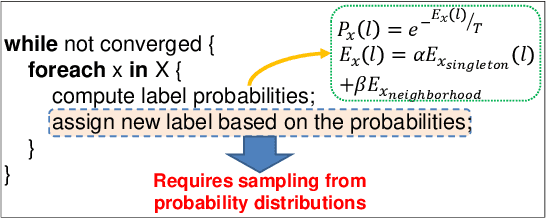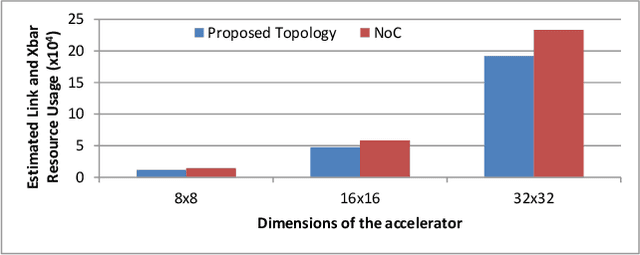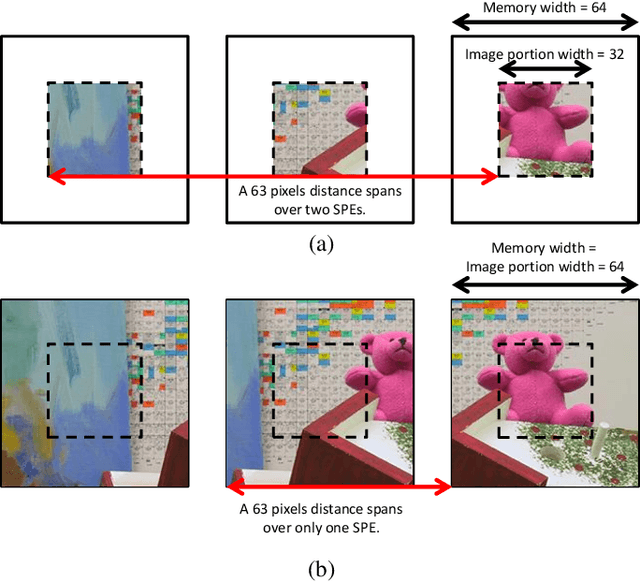Accelerating Markov Random Field Inference with Uncertainty Quantification
Paper and Code
Aug 02, 2021



Statistical machine learning has widespread application in various domains. These methods include probabilistic algorithms, such as Markov Chain Monte-Carlo (MCMC), which rely on generating random numbers from probability distributions. These algorithms are computationally expensive on conventional processors, yet their statistical properties, namely interpretability and uncertainty quantification (UQ) compared to deep learning, make them an attractive alternative approach. Therefore, hardware specialization can be adopted to address the shortcomings of conventional processors in running these applications. In this paper, we propose a high-throughput accelerator for Markov Random Field (MRF) inference, a powerful model for representing a wide range of applications, using MCMC with Gibbs sampling. We propose a tiled architecture which takes advantage of near-memory computing, and memory optimizations tailored to the semantics of MRF. Additionally, we propose a novel hybrid on-chip/off-chip memory system and logging scheme to efficiently support UQ. This memory system design is not specific to MRF models and is applicable to applications using probabilistic algorithms. In addition, it dramatically reduces off-chip memory bandwidth requirements. We implemented an FPGA prototype of our proposed architecture using high-level synthesis tools and achieved 146MHz frequency for an accelerator with 32 function units on an Intel Arria 10 FPGA. Compared to prior work on FPGA, our accelerator achieves 26X speedup. Furthermore, our proposed memory system and logging scheme to support UQ reduces off-chip bandwidth by 71% for two applications. ASIC analysis in 15nm shows our design with 2048 function units running at 3GHz outperforms GPU implementations of motion estimation and stereo vision on Nvidia RTX2080Ti by 120X-210X, occupying only 7.7% of the area.
 Add to Chrome
Add to Chrome Add to Firefox
Add to Firefox Add to Edge
Add to Edge